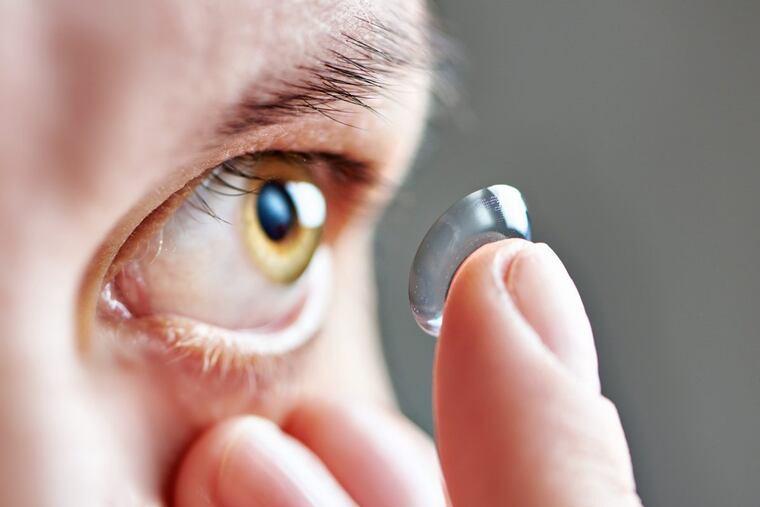Are contact lenses safe to wear during coronavirus outbreak?
Mouths and noses have gotten the most attention as potential entry points for the virus, but germs can just as easily enter your body through your eyes.

By now we’re all familiar with the guidance that one of the best ways to protect against contracting the coronavirus is to stop touching our faces.
So what does that mean for contact lens wearers? We spoke with Christopher J. Rapuano, chief of the cornea service at Wills Eye Hospital, for some advice.
Opt for glasses instead of contacts
Mouths and noses have gotten the most attention as potential entry points for the virus, but germs can just as easily enter your body through your eyes — and wearing contacts requires touching your eyes at least twice a day to insert and remove them.
“It’s pretty logical that if people can decrease their amount of contact lens use or stop contact use — that’s what we’re recommending,” Rapuano said.
If you typically opt for contacts out of convenience or appearance but can see just as well with glasses, consider sticking with glasses for now.
One added bonus for glasses, especially if you have one of the popular oversize styles: They can act somewhat as a shield, blocking things from getting in your eyes.
Wash well if using contacts
For some people with cornea problems or very poor eyesight, glasses just don’t improve vision as well as contacts do. Or perhaps your glasses prescription is woefully outdated because your insurance covers only glasses or contacts every year.
Whatever the reason, if you must wear contacts, make sure you wash your hands well before putting contacts in and taking them out.
Don’t rub your eyes
Contacts can cause dry eyes, so be extra careful to not rub them. Have on hand a bottle of artificial tears or cold compress to turn to if you feel the urge to itch.
If you are sensitive to allergies, an over-the-counter allergy drop medication, such as olopatadine or ketotifen, can help curb itchiness.
Are you a serial face-toucher? Check out some additional tips here.